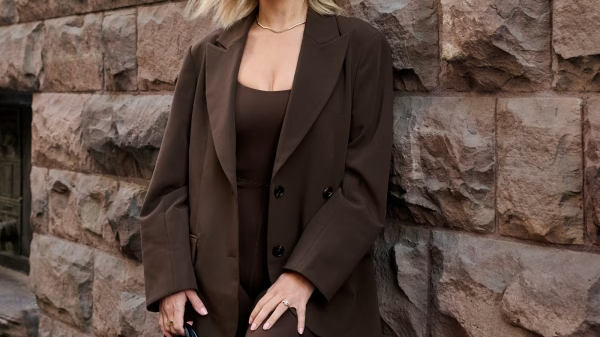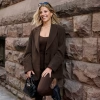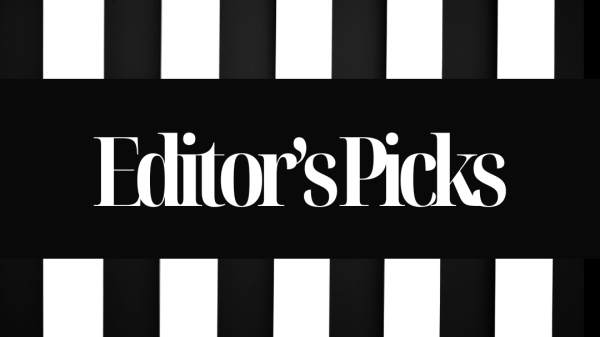We caught up with Angela DeMontigny, an internationally renowned fashion designer, at the Canadian Council for Aboriginal Business’ 19th Annual Toronto Gala at the Ritz Carlton. Angela showcased her Spring 2017 designs at an exclusive Indigenous fashion show and we were inspired by her collection. This is her story.
What made you choose a career in Fashion and made you want to create your own brand?
I’ve always loved fashion, since I was quite young. I always had my own vision of what I wanted to create. I spoke on a panel at Ryerson, and it was called Fashion Reconciliation and it was about discussing indigenous designers. And it’s roll in Canadian fashion and the truth about reconciliation and how people have been treated in history and fashion’s place in that. As an indigenous designer we are all about representing our culture and our identity through that. It’s our responsibility to be authentic. Looking at the authenticity of manufacturing around the world and cultural appropriation and how much that has happened with us because, everything has been taken. We are trying to establish ourselves as real, this is who we are and this is worthy of the world’s attention.

How do you represent yourself as an aboriginal designer?
I’ve made a choice to show people a different perspective of whom we are and not doing anything that is stereotypical for a reason. Other designers around the world that use our culture as influences for their collections, they are using stereotypical images in their designs. Which is keeping us back a few hundred years. So it is not enabling us to evolve as people in the minds of the rest of the world. So we are doing this to show people who we are now. Our culture is a huge part of the foundation to my collection but I do it in a way to show how I view things.
How did the CCAB award affect your career?
It brought me to Toronto where there is an established industry as apposed to Vancouver. The people that I worked with enabled me to meet the major players in the industry. What was Toronto Fashion Week helped me to learn how fashion weeks are produced. I showed at Toronto Fashion Week in 2004 and it was their first group showing of Aboriginal designers. It was called L’Oreal Fashion Week at the time and the show was called Fashion Nation. I was one of eight of the best Aboriginal designers in the country. It was very cool, we showed the opening night.
Did working in fashion run in your family? And does your family inspire your work?
Fashion did not run in my family but my ancestors inspired my work.

How do politics affect your ascetic?
Politics now will have a major influence in what I design. It’s more about making statements in regards to truth and reconciliation. More about advancing education.
Have any animal rights groups ever complained about your use of leather and fur?
Only a few times in very small ways on Facebook and online. It has never happened in person. And if anybody ever asks me about it I actually have a lot of vegans that come in to my store and they can actually appreciate what I do. I do everything from an Aboriginal perspective. The furs I use are from wild animals that there is a huge over population of, namely racoon. And what I’ve found is that there is a lot of hypocrisy, and a major lack of education in regards to wild life sustainability and what people even understand about that. So I explain to them so that they have a much better understanding of it. It is part of my culture.
What advice would you give to an inspiring designer?
Work in the fashion industry in every area that you can. Work in retail, learn how to wardrobe, learn how to sew and listen to what people want. You cannot successfully design in a vacuum. It is important to learn from some else’s business first and work in the industry. Having hands on experience is irreplaceable. It’s mandatory in my opinion; you have you have to be committed. You have to be passionate about the industry and absolutely love what you are doing because then it’s not work.
What do you love about the fashion industry and what would you change about it?
I guess what I love about the industry is that it is constantly changing. You are never bored you are always learning. Fashion is an avenue that you can be ultimately creative in. Yes, you have to know how to sew the things that you make but you can put your own stamp on everything that you do because it is an extension of yourself. What I don’t like about fashion is how difficult it is and I don’t think that it should be. It is very difficult to have things made in Canada now. That needs to change, we have sold all of your manufacturing off to other countries. It used to be such a thriving industry in Canada that employed so many people. It was something we were so proud of and all of that disappeared. But it is coming back slowly.
How does social media affect fashion and your brand?
Well, it has been amazing because it enables you to get in front of the world. It’s been incredible actually to establish your brand on a global basis. I don’t know how else I would have been able to do that otherwise without attending shows and spending thousands of dollars to do that.
Shop The Collection
Contributor: Olivia Jordan
Instagram








You must be logged in to post a comment Login